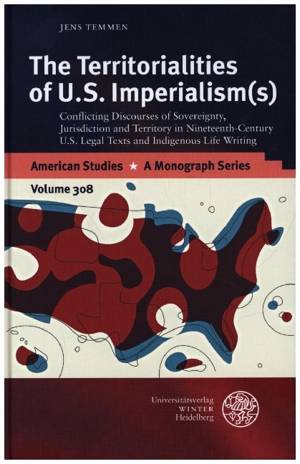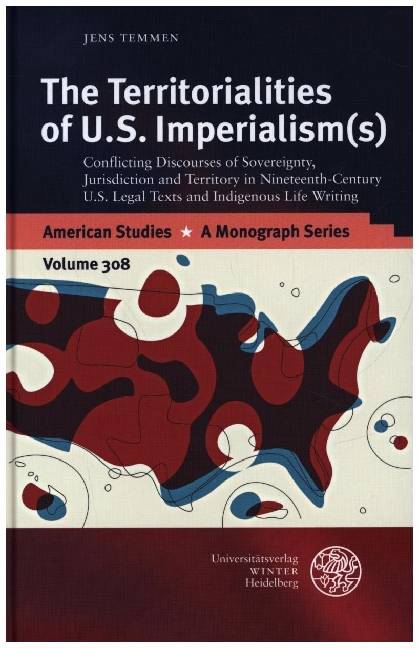
Bedankt voor het vertrouwen het afgelopen jaar! Om jou te bedanken bieden we GRATIS verzending (in België) aan op alles gedurende de hele maand januari.
- Afhalen na 1 uur in een winkel met voorraad
- In januari gratis thuislevering in België
- Ruim aanbod met 7 miljoen producten
Bedankt voor het vertrouwen het afgelopen jaar! Om jou te bedanken bieden we GRATIS verzending (in België) aan op alles gedurende de hele maand januari.
- Afhalen na 1 uur in een winkel met voorraad
- In januari gratis thuislevering in België
- Ruim aanbod met 7 miljoen producten
Zoeken
Conflicting Discourses of Sovereignty, Jurisdiction and Territory in Nineteenth-Century U.S. Legal Texts and Indigenous Life Writing
Conflicting Discourses of Sovereignty, Jurisdiction and Territory in Nineteenth-Century U.S. Legal Texts and Indigenous Life Writing. Dissertationsschrift
Jens Temmen
€ 43,45
+ 86 punten
Omschrijving
'The Territorialities of U.S. Imperialisms' sets into relation U.S. imperial and Indigenous conceptions of territoriality as articulated in U.S. legal texts and Indigenous life writing in the 19th century. It analyzes the ways in which U.S. legal texts as "legal fictions" narratively press to affirm the United States' territorial sovereignty and coherence in spite of its reliance on a variety of imperial practices that flexibly disconnect and (re)connect U.S. sovereignty, jurisdiction and territory. At the same time, the book acknowledges Indigenous life writing as legal texts in their own right and with full juridical force, which aim to highlight the heterogeneity of U.S. national territory both from their individual perspectives and in conversation with these legal fictions. Through this, the book's analysis contributes to a more nuanced understanding of the coloniality of U.S. legal fictions, while highlighting territoriality as a key concept in the fashioning of the narrative of U.S. imperialism.
Specificaties
Betrokkenen
- Auteur(s):
- Uitgeverij:
Inhoud
- Aantal bladzijden:
- 259
- Taal:
- Engels
- Reeks:
- Reeksnummer:
- nr. 308
Eigenschappen
- Productcode (EAN):
- 9783825347130
- Verschijningsdatum:
- 22/07/2020
- Uitvoering:
- Hardcover
- Formaat:
- Genaaid
- Afmetingen:
- 135 mm x 211 mm
- Gewicht:
- 416 g

Alleen bij Standaard Boekhandel
+ 86 punten op je klantenkaart van Standaard Boekhandel
Beoordelingen
We publiceren alleen reviews die voldoen aan de voorwaarden voor reviews. Bekijk onze voorwaarden voor reviews.









